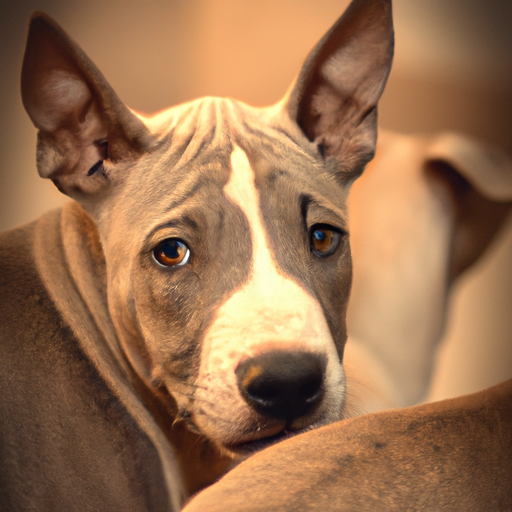Understanding Canine Aggression
When you’re a devoted caregiver to a canine companion, seeing them exhibit aggressive behavior can be both startling and distressing. Aggression in dogs can materialize in various forms such as growling, snapping, and biting. While it might be easy to label such behavior as something ‘wrong’ with your dog, it’s vital to understand that aggression is often a symptom, not the disease.
Aggression can be a response to a multitude of factors including fear, territoriality, or even discomfort due to a medical condition. It’s crucial to remember that your dog isn’t ‘bad’ or ‘violent’ – rather, they’re reacting to their environment or physical state in the only way they know how.
The Root Causes Behind Aggression
Let’s delve into some common triggers of canine aggression:
- Fear: Fear is a significant instigator. A dog might become aggressive in an attempt to protect themselves when they feel threatened.
- Pain or Discomfort: Physical pain can provoke aggression. If your normally placid pet suddenly becomes aggressive, a vet check-up is in order to rule out any medical issues.
- Possessiveness: Dogs can show aggression when they feel their possessions (toys, food, space) are threatened. This is known as resource guarding.
- Frustration: Known as redirected aggression, this can occur when a dog is frustrated at not being able to get to something and redirects that aggression onto someone else.
Identifying Signs of Aggression
Noticing the early signs of aggression can help you intervene before the situation escalates. Here are some warning signals to watch out for:
- Growling or snapping
- Rigid body posture
- Baring of teeth
- Intense stare or dilated pupils
- Ears pinned back against the head
Mitigating Canine Aggression
Addressing canine aggression can be a complex process that is best carried out with the help of a professional. However, here are some general steps you can take:
- Identify Triggers: Keep a record of when your dog becomes aggressive and try to identify the common factors.
- Seek Professional Help: A professional dog trainer or behaviorist can provide invaluable guidance in managing and modifying aggressive behavior.
- Medical Check-up: If the aggression has come on suddenly, consider a veterinary evaluation to rule out any underlying health issues.
Preventive Measures
Prevention is always better than cure. Here are some ways to prevent aggression:
- Socialize your dog from a young age
- Train them with positive reinforcement methods
- Provide plenty of physical and mental stimulation
- Regular vet check-ups to catch any potential health issues early
| Prevention Measures | Description |
|---|---|
| Socialization | Expose your dog to various environments, people, and other animals from a young age |
| Positive Reinforcement Training | Reward good behavior to encourage more of it |
| Regular Stimulation | Keep your dog mentally and physically engaged to prevent frustration |
| Regular Vet Check-ups | Early detection of health issues can prevent aggression caused by pain or discomfort |
FAQs
Q: Is aggression more common in certain dog breeds?
A: Aggression is not breed-specific. It can occur in any dog, regardless of breed.
Q: My dog is only aggressive with certain people or animals. Why is this?
A: This could be due to a past negative experience with similar individuals or a lack of socialization.
Q: My dog seems to be aggressive for no reason. What should I do?
A: Unexplained aggression could be due to a medical issue. It’s best to consult a vet.
Q: Can aggression be cured?
A: While some forms of aggression can be managed or reduced significantly with training and behavior modification strategies, there is no guaranteed ‘cure’. It’s about managing and modifying the behavior effectively.



